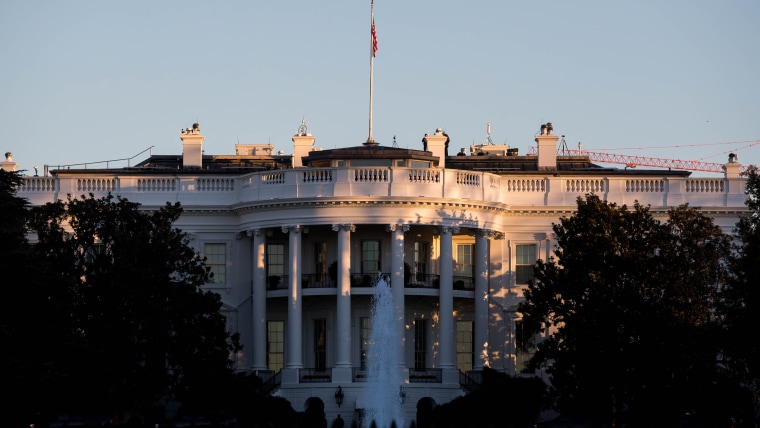As regular readers know, officials in Donald Trump’s White House cannot credibly claim ignorance when it comes to proper email protocols. Trump World was told not to use private email accounts to conduct official business. The National Security Agency also warned White House officials that use of private email accounts created a security threat.
What’s more, Trump’s entire political operation had just spent two years telling the public that Hillary Clinton should be incarcerated for having used a private email server.
And yet, several top members of the president's team ignored the rules and the warnings, and used private email accounts anyway. This has generated some interest on Capitol Hill, but as Politico reported, the White House has decided not to care.
The White House brushed off a bipartisan request from House investigators for details of senior administration officials' use of private email and encrypted messaging apps for government work, including possible violations of federal record-keeping laws, a letter obtained by POLITICO shows.In a terse letter to Reps. Trey Gowdy (R-S.C.) and Elijah Cummings (D-Md.) -- leaders of the House oversight committee -- President Donald Trump's congressional liaison Marc Short declined to indicate whether any administration officials had used personal email accounts or messaging services, despite reports suggesting such communications were common in the West Wing.
Gowdy and Cummings requested "the individual, cellular number and account used" by any White House officials who communicated using "text-messages, phone-based message applications, or encryption software to conduct official business."
Short responded that White House officials "endeavor to comply" with the relevant laws -- which isn't the same thing as actually following the law -- before declining to provide lawmakers with any additional details.
Traditionally, when lawmakers engaged in administrative oversight request information, and the White House blows them off, Congress takes the slights quite seriously. That said, it's a Republican-led Congress and a Republican White House, so it's possible GOP members will simply shrug their shoulders. The decision is largely in the hands of Trey Gowdy, who's generally been an ally of this White House.
While we wait for this to play out, however, let's not miss the forest for the trees.
As I've conceded before, email server protocols, in general, are neither interesting nor important. As Trump World controversies go, this probably seems relatively trivial.
But we're nevertheless talking about a dynamic that's truly ridiculous: the people who were apoplectic about these email rules in 2015 and 2016 are the same people who’ve broken the rules in 2017. Trump and his lieutenants just spent two years peddling hysterical rhetoric about incarcerating Hillary Clinton for having used a private email account to conduct official business, and yet, almost immediately after taking office, the president’s new team proceeded to adopt the same practice they claimed to be criminally outrageous.
It’s not like Trump’s top aides can say they didn't know better -- since they’re the ones who said they were disgusted by this.
Now, confronted with routine questions from Congress, Team Trump has decided email protocols aren't interesting after all.
The story poses a related challenge to the political world and the media establishment: either private emails are important or they're not. As recently as a year ago, the American electorate was led to believe this was the critical issue facing the nation, sparking an endless series of front-page stories, breathless broadcast segments, and enough editorials and columns to last a lifetime.
Are those who pretended to find this issue fascinating last year prepared to pursue the same questions with equal vigor this year?
